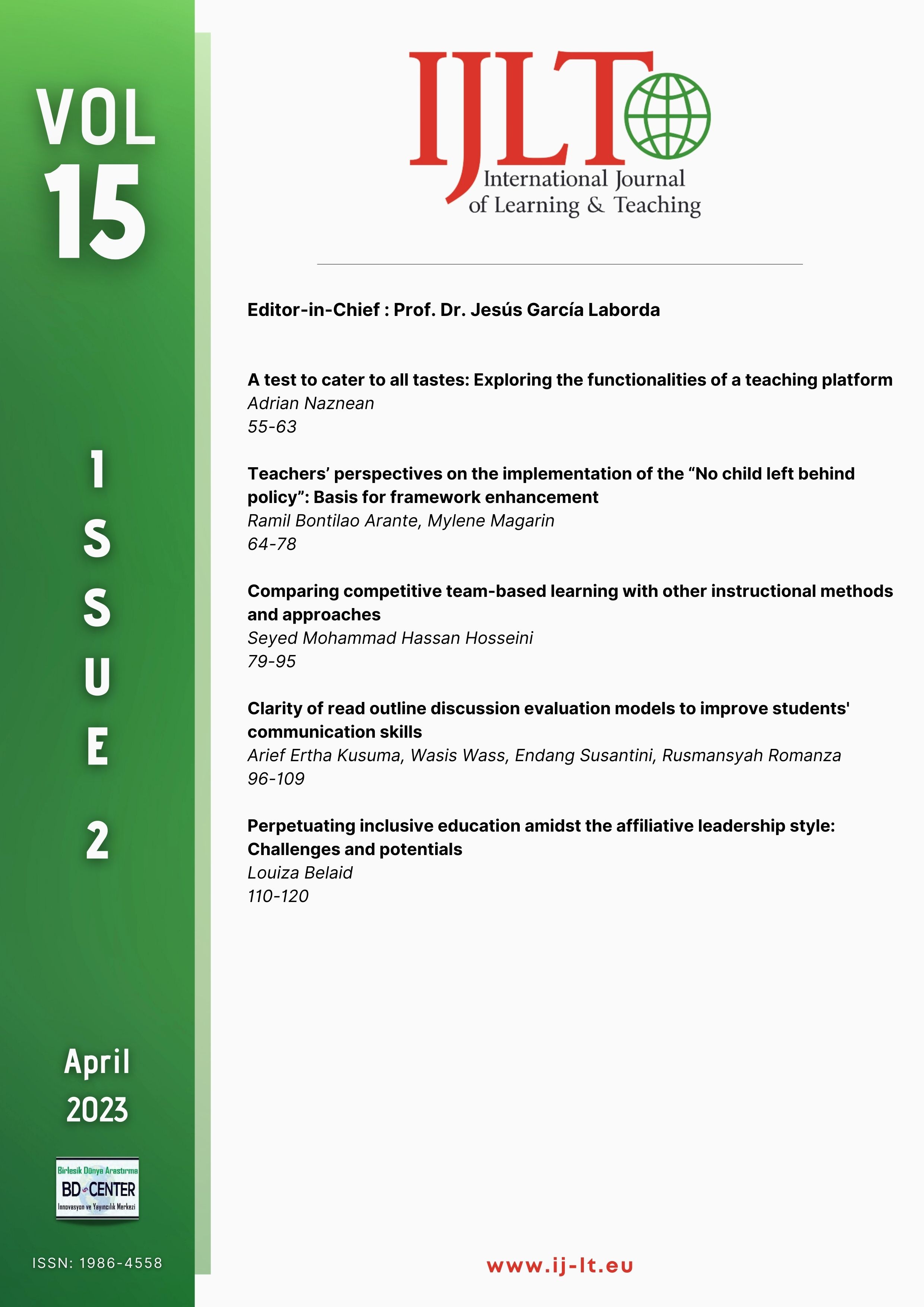Teachers’ perspectives on the implementation of the “No child left behind policy”: Basis for framework enhancement
Main Article Content
Abstract
This study aimed to evaluate the teachers’ perspectives on the implementation of the “No Child Left Behind Policy” in the Elementary Schools in Cabadbaran City Southeast District. The researchers employed the descriptive survey design utilizing adapted and validated researcher-made questionnaires. It was administered to 108 teacher-participants who were elementary public-school teachers of South-east Cabadbaran District in the Division of Cabadbaran City. The researcher used complete enumeration in data gathering. Collected data were statistically treated and analyzed using Mean. Based on the study results, the participants’ perspectives on the implementation of the “No Child Left Behind” policy in terms of school accountability and teachers’ competency were outstanding. The implementation level was very satisfactory in terms of adequate/average yearly progress, student academic performance, teachers’ level of awareness, and workload under this policy. This finding means that the teacher-participants believed this program needed no improvement in its implementation.
Keywords: No child left behind policy, school accountability, teachers’ awareness, teachers’ perspectives, teachers’ workload;
Downloads
Article Details

This work is licensed under a Creative Commons Attribution-NonCommercial-NoDerivatives 4.0 International License.
Authors who publish with this journal agree to the following terms:
- Authors retain copyright and grant the journal right of first publication with the work simultaneously licensed under a Creative Commons Attribution License that allows others to share the work with an acknowledgement of the work's authorship and initial publication in this journal.
- Authors are able to enter into separate, additional contractual arrangements for the non-exclusive distribution of the journal's published version of the work (e.g., post it to an institutional repository or publish it in a book), with an acknowledgement of its initial publication in this journal.
- Authors are permitted and encouraged to post their work online (e.g., in institutional repositories or on their website) prior to and during the submission process, as it can lead to productive exchanges, as well as earlier and greater citation of published work (SeeThe Effect of Open Access).
